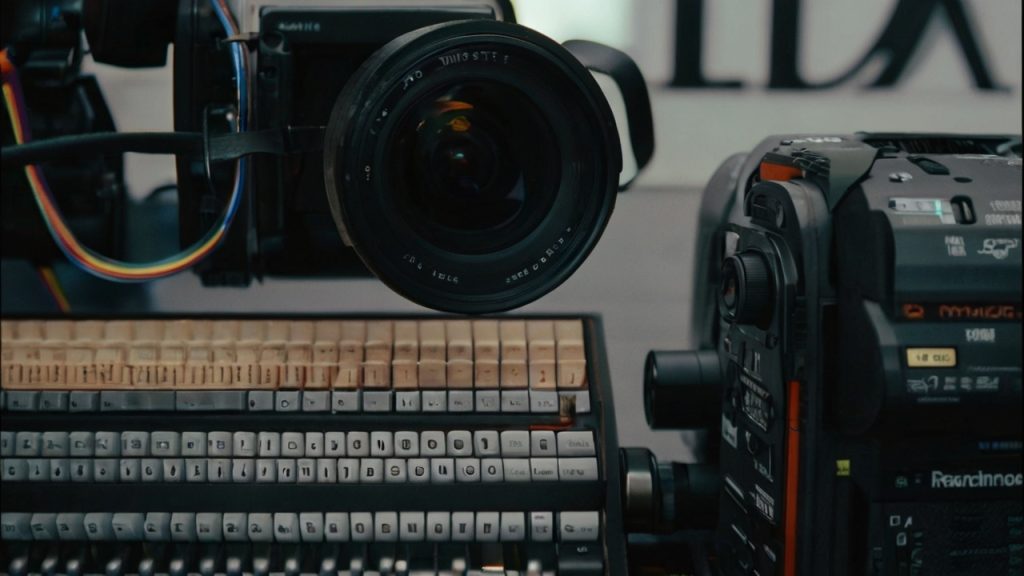Odyssey, a year-old artificial intelligence startup, has announced its ambitious plan to develop a groundbreaking AI-powered video creation tool that promises to bring Hollywood-grade visual effects to the masses. The company, founded by Oliver Cameron and Jeff Hawke, both veterans of the autonomous vehicle industry, is leveraging their expertise in visual AI techniques to create a tool that could potentially transform the creative industries.
The key innovation that sets Odyssey apart from existing text-to-video tools is its promise of granular control over every element in the generated scenes. Current AI video generation tools typically produce non-editable video files, forcing users to restart the entire process if any aspect of the scenery, characters, lighting, or motion is unsatisfactory. Odyssey aims to overcome this limitation by training four separate generative models that allow fine-tuning of geometry, materials, lighting, and motion.
This approach enables users to rapidly create and edit videos exactly as envisioned, potentially opening up new possibilities for storytellers in movies, TV, and video games. The technology is designed to integrate seamlessly with existing Hollywood tools and systems used for visual effects production.
Cameron, Odyssey’s CEO, emphasized the importance of creating “glitch-free and mind-blowing visuals” for AI to be truly useful in Hollywood productions. He contrasted this goal with the current prevalence of lower-quality AI-generated content, stating that Odyssey’s technology aims to elevate the standard of AI-created visuals.
The startup’s approach is inspired by the visual AI techniques used in self-driving cars, which require accurate physics simulations and the ability to scale with real-world data. This background in autonomous vehicle technology has informed Odyssey’s unique approach to AI video generation.
To fund their ambitious project, Odyssey has raised $9 million in seed funding, led by Google Ventures. The company acknowledges that building these sophisticated AI models is more challenging than developing typical text-to-video tools, but they believe the result will be a superior end product suitable for professional film and game production.

The Odyssey system works by using multiple AI models to generate four distinct layers of a composite video:
- Geometry: Creating the basic structure and shapes of objects and characters in the scene.
- Materials: Applying realistic textures and surfaces to the geometric forms.
- Lighting: Implementing dynamic and atmospheric lighting effects.
- Motion: Controlling the movement of objects and characters within the scene.
These four layers are generated simultaneously based on a single text prompt and then combined to create the final video output. Users will have the ability to configure each layer separately, providing unprecedented control over the final product.
While Odyssey’s technology sounds promising, it’s important to note that the AI video model is still in its early development stages, and no specific launch date has been announced. The company has committed to sharing regular updates on its progress.
If Odyssey delivers on its promises, the technology could significantly lower the barriers to creating high-quality, realistic video content. This democratization of video production tools could enable a wider range of storytellers to bring their visions to life, potentially disrupting the film, television, and gaming industries.
However, several questions remain about the specific capabilities and limitations of the technology, as well as the timeline for making it accessible to creators. It’s also unclear how Odyssey’s offering will compare to other emerging AI video generation tools, such as OpenAI’s Sora, which has generated significant buzz in the tech community.
The potential impact of Odyssey’s technology extends beyond just the entertainment industry. As AI-generated content becomes more sophisticated and indistinguishable from human-created content, it raises important questions about the future of creative work, copyright issues, and the potential for misuse in creating deepfakes or misleading media.
Despite these challenges, the promise of Odyssey’s technology is undeniable. By combining the power of multiple AI models and drawing inspiration from autonomous vehicle technology, Odyssey is pushing the boundaries of what’s possible in AI-generated video content.

As the company continues to develop its technology, industry observers and potential users will be eagerly watching to see if Odyssey can deliver on its ambitious goals. If successful, this startup could play a significant role in shaping the future of visual storytelling and content creation across multiple industries.
Copyright©dhaka.ai
tags: Artificial Intelligence, Ai, Dhaka Ai, Ai In Bangladesh, Ai In Dhaka, Future of AI, Artificial Intelligence in Bangladesh, Odyssey



